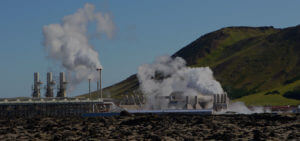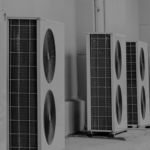Geothermal HVAC systems have come a long way since Chaudes-Aigues, France tapped into natural hot springs to create one of the world’s first recorded heating networks. Today, the general idea of using natural sources to heat and cool homes and offices is combined with modern technology. Modern geothermal HVAC systems work by taking advantage of the earth’s consistent, moderate temperature. Geothermal HVAC technicians install a piping system that circulates water in a loop to exchange heat between your home, the ground source heat pump, and the earth. This provides geothermal heating, cooling, and hot water at remarkably high efficiencies. Even though geothermal heating and cooling systems might have high installation costs, these systems return dividends in energy cost reduction, green tax breaks, and longer lifespans.
Operational Costs
During the coldest winter weeks or hottest summer dog days, heating and cooling costs spike due to dependence on energy and machinery operation. Compared to other types of HVAC systems, geothermal heating and cooling systems offer home and business owners extreme savings. Geothermal HVAC systems tout a 400 percent energy efficiency rating. This efficiency can mean up to 70 percent of savings on energy costs. Even better, these operational cost savings can include a decrease in water usage bills with the addition of extra components. In the right climate, home and business owners can earn back their initial investments in 3-7 years.
Green Tax Breaks
Burning fossil fuels has a big impact on the environment—and on your wallet, too. Even with continuous industry advancements, most fossil fuel burning HVAC systems lag behind geothermal systems in terms of efficiency. Your building’s efficiency rating is important in receiving tax credits for going green. In fact, geothermal heat pumps qualify for a tax credit equal to 30 percent of equipment and installation costs, with no upper limit. From day one, Geothermal heating and cooling systems bring home the savings.
System lifespans
If you’ve lived in an older house with a hot water boiler, you might know the dread knocking pipes can cause. Most traditional HVAC units are complex systems that need many different components to work in unison. If anyone of those components fails, the whole system fails. Furthermore, important traditional HVAC components may be subject to wear and tear caused by outdoor elements. Whereas a brand new hot water boiler system might last 10 to 15 years on average, Geothermal heating and cooling systems can last up to 50 years. Besides built-in longevity, geothermal heating and cooling systems need little to no routine maintenance beyond filter changes and inspections.
Conclusion
If you’re interested in the lower energy cost, green tax credits, and long-life spans geothermal heating and cooling systems have to offer, reach out to John’s Service and Sales today. Our technicians have the experience and technical knowledge to design, install, and maintain the geothermal heating and cooling system that’s right for you. Beyond having the know-how, our technicians take pride in providing top-notch customer service. At John’s Service and Sales, we always put your unique needs and goals first.



